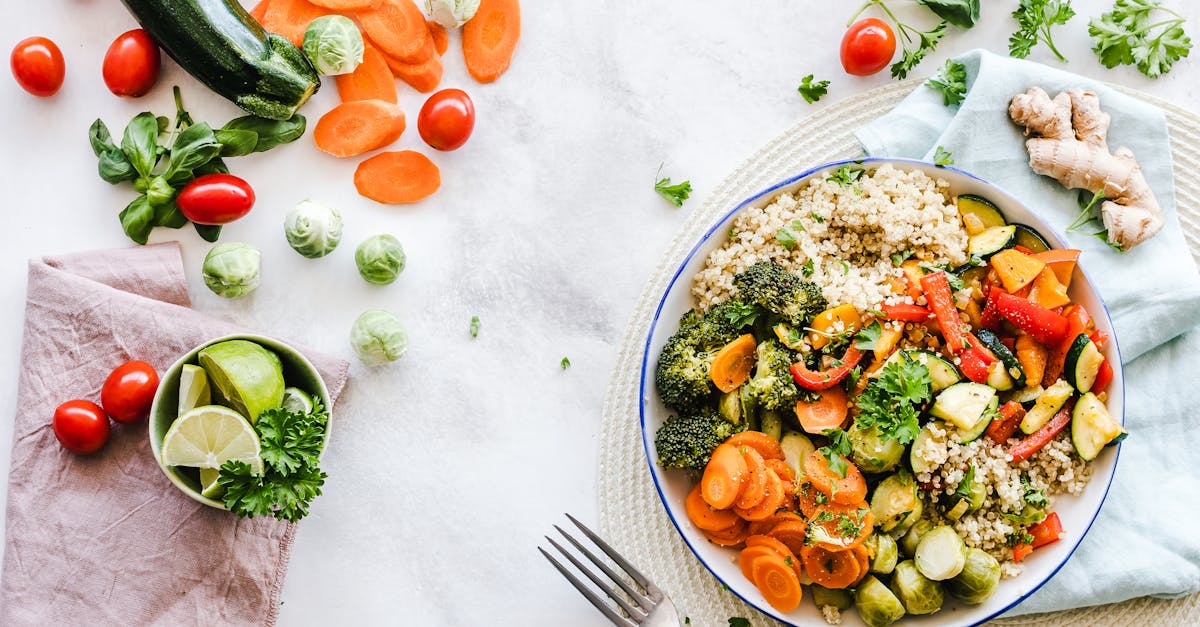A plant-based diet is one that primarily focuses on consuming whole, unprocessed foods derived from plants such as fruits, vegetables, whole grains, legumes, nuts, and seeds. It also limits or eliminates the consumption of animal products like meat, dairy, and eggs. This type of diet has become increasingly popular in recent years due to its numerous health benefits, both for individuals and the environment. In this article, we will explore the many advantages of a plant-based diet and provide tips for transitioning to this healthier way of eating.
Health Benefits of a Plant-Based Diet

Reduced Risk of Chronic Diseases
One of the main reasons people choose to adopt a plant-based diet is for its potential health benefits. Studies have shown that following a plant-based diet can significantly reduce the risk of chronic diseases such as heart disease, diabetes, and certain types of cancer. This is because plant-based foods are rich in vitamins, minerals, fiber, and antioxidants, which all play important roles in maintaining good health.
For example, a 2017 study published in the Journal of Geriatric Cardiology found that those who followed a vegetarian diet had a 32% lower risk of developing heart disease compared to non-vegetarians. Another study published in the journal Nutrients in 2019 showed that following a plant-based diet was associated with a reduced risk of diabetes and metabolic syndrome. This is because plant-based foods are generally low in unhealthy fats and added sugars, which are major contributors to these conditions.
Moreover, a plant-based diet has been linked to a lower risk of certain types of cancer, particularly colon and breast cancer. This is partly due to the high intake of dietary fiber and phytochemicals found in plant-based foods, which have anti-carcinogenic properties. Additionally, plant-based diets are often lower in processed and red meats, which have been linked to an increased risk of cancer.
Improved Weight Management
Obesity is a major health issue facing many countries around the world. According to the World Health Organization, globally, there are more than 1.9 billion adults who are overweight, with over 650 million being classified as obese. A plant-based diet can be an effective way to manage weight and reduce the risk of obesity, as it is naturally low in calories and high in nutrient-dense foods.
A study published in the Journal of General Internal Medicine in 2015 found that individuals following a plant-based diet had a significantly lower body mass index (BMI) compared to those following a standard American diet. Another study published in the journal Nutrition and Diabetes showed that those who followed a vegan diet for 16 weeks lost an average of 8.2 pounds, while those following a vegetarian diet lost an average of 6.3 pounds. In contrast, participants following a control diet did not experience any significant weight loss.
Lower Rates of Inflammation
Inflammation is a natural process that occurs in the body to protect against injury or infection. However, chronic inflammation has been linked to various health issues, including heart disease, diabetes, autoimmune disorders, and even depression. Plant-based diets, particularly those rich in whole foods like fruits, vegetables, and whole grains, have been shown to have anti-inflammatory effects on the body.
A study published in the Journal of Geriatric Cardiology in 2017 found that vegetarians had significantly lower levels of inflammatory markers compared to non-vegetarians. Similarly, a review published in the Nutrients journal in 2019 showed that both vegetarian and vegan diets were associated with lower levels of inflammation in the body.
Environmental Benefits of a Plant-Based Diet
Aside from the personal health benefits, adopting a plant-based diet can also have positive effects on the environment. Here are some of the ways that choosing plant-based options over animal products can help reduce our impact on the planet.
Reduced Greenhouse Gas Emissions
According to the Food and Agriculture Organization of the United Nations, the livestock industry is responsible for approximately 14.5% of global greenhouse gas emissions. This is due to the production of methane from ruminant animals such as cows, as well as the energy-intensive processes involved in producing and transporting animal feed and meat products. By reducing or eliminating animal products from our diets, we can decrease our contribution to greenhouse gas emissions and help combat climate change.
Conservation of Resources
The production of animal products requires significantly more resources compared to plant-based foods. For example, it takes approximately 1,000 gallons of water to produce just one gallon of milk. In contrast, most plant-based foods require much less water to produce. Adopting a plant-based diet can help conserve water and other resources, which are becoming increasingly scarce.
Additionally, the production of animal products also requires large amounts of land, which is often used for grazing or growing animal feed. This contributes to deforestation and loss of biodiversity. By choosing to consume plant-based foods, we can help preserve natural habitats and conserve wildlife.
Decreased Pollution
Animal agriculture is responsible for the release of various pollutants into the environment, including ammonia, nitrates, and phosphorus. These pollutants can contaminate water supplies and contribute to pollution in the air. Plant-based diets, on the other hand, have a much lower environmental impact and can help reduce pollution levels.
Tips for Transitioning to a Plant-Based Diet

Making the switch to a plant-based diet can seem daunting at first, especially if you are used to eating a lot of animal products. However, with the right approach, transitioning to this way of eating can be enjoyable and sustainable. Here are some tips to help you get started.
Start Gradually
Instead of trying to completely overhaul your diet overnight, it can be helpful to make gradual changes. For example, you can start by incorporating more plant-based meals into your week and gradually increasing the number of days you eat a fully plant-based diet. This way, you can give your taste buds and digestive system time to adjust.
Experiment with New Recipes and Ingredients
One of the best ways to enjoy a plant-based diet is to get creative with your meals. There are countless delicious plant-based recipes available online, and many ingredients that may be new to you, such as tofu, tempeh, and nutritional yeast. Don’t be afraid to try new things and experiment with different flavors and textures.
Focus on Whole Foods
It’s important to note that not all plant-based foods are created equal. While processed plant-based products like vegan burgers and ice cream can be convenient options, they should not make up the majority of your diet. Instead, try to focus on whole, unprocessed foods like fruits, vegetables, legumes, and whole grains for optimal health benefits.
Don’t Be Too Hard on Yourself
Making any dietary change can come with its challenges, and it’s essential to be patient and kind to yourself during this transition. It’s okay to slip up and have a non-plant-based meal once in a while. The goal is progress, not perfection. Remember that every meal is an opportunity to make a healthier choice.
Delicious Plant-Based Recipes
To get you started on your plant-based journey, here are three delicious recipes that are sure to satisfy your taste buds.
Quinoa and Black Bean Buddha Bowl
Ingredients:
- 1 cup quinoa, rinsed
- 2 cups vegetable broth
- 1 can black beans, drained and rinsed
- 1 red bell pepper, diced
- 1 avocado, diced
- 1 cup cherry tomatoes, halved
- 1/4 cup cilantro, chopped
- 1/4 cup red onion, diced
- Juice of 1 lime
- Salt and pepper to taste
Instructions:
- In a saucepan, bring the quinoa and vegetable broth to a boil. Reduce heat, cover, and simmer for 15 minutes.
- In a bowl, combine the black beans, bell pepper, avocado, cherry tomatoes, cilantro, red onion, and lime juice.
- Once the quinoa is cooked, fluff it with a fork and let it cool for a few minutes.
- Add the quinoa to the bowl with the other ingredients and mix well.
- Season with salt and pepper to taste.
Vegan Coconut Curry
Ingredients:
- 1 tablespoon coconut oil
- 1 onion, finely chopped
- 2 cloves garlic, minced
- 1 tablespoon ginger, grated
- 1 red bell pepper, diced
- 1 cup mushrooms, sliced
- 1 can chickpeas, drained and rinsed
- 1 can coconut milk
- 1 tablespoon curry powder
- 1 teaspoon turmeric powder
- Salt and pepper to taste
- Fresh cilantro for garnish (optional)
Instructions:
- Heat the coconut oil in a large pot over medium heat.
- Add the onion, garlic, and ginger and sauté for 2-3 minutes until fragrant.
- Add the red bell pepper and mushrooms and continue to sauté for another 2-3 minutes.
- Stir in the chickpeas, coconut milk, curry powder, turmeric powder, salt, and pepper.
- Bring the mixture to a boil, then reduce the heat and let it simmer for 10-15 minutes.
- Serve over rice or quinoa and top with fresh cilantro, if desired.
Chocolate Peanut Butter Smoothie
Ingredients:
- 1 frozen banana
- 1 cup almond milk
- 2 tablespoons cocoa powder
- 2 tablespoons peanut butter
- 1 tablespoon chia seeds
- 1 teaspoon vanilla extract
- 1/4 cup rolled oats
- Handful of ice cubes
Instructions:
- In a blender, combine all the ingredients and blend until smooth.
- Pour into a glass and enjoy!
Conclusion
In conclusion, a plant-based diet offers numerous health benefits, including a reduced risk of chronic diseases, improved weight management, and lower rates of inflammation. It also has positive effects on the environment, such as decreased greenhouse gas emissions and conservation of resources. By following the tips provided and incorporating delicious plant-based recipes into your meals, you can easily make the switch to a healthier and more sustainable way of eating. Give it a try and see the difference it can make in your life!

